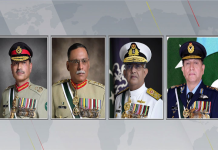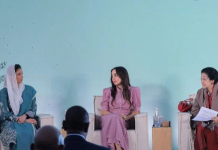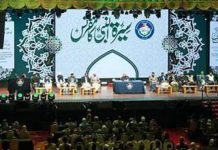Planning and Development Minister Ahsan Iqbal said on Tuesday that the National Economic Council (NEC) — the country’s highest forum of the federation on economic decision-making — had approved an energy conservation plan under which shops and commercial centres would be closed by 8pm.
The minister announced this during a press conference in Islamabad after an NEC meeting, which was chaired by Prime Minister Shehbaz Sharif and approved the estimated budget figures.
Iqbal said issues pertaining to energy and infrastructure were discussed during the meeting, adding that “energy is become a huge challenge for Pakistan due to global prices”.
“Saudi Arabia has cut down oil production by one million barrels, which poses a risk of oil prices rising to $100 per barrel,” he said, highlighting that if the country continued to rely on fossil fuel and oil for its energy needs, “our economy will remain vulnerable”.
To counter this, he said, one of the measures that the government wanted to implement pertained to energy conservation.
Iqbal recalled that the federal cabinet had vowed to enforce decisions under a National Energy Conservation Plan in January this year. “But there was no representation of provinces in that meeting. So we took it up again in the NEC, where provincial government representatives were also present.
“And now we hope that provincial governments will ensure the implementation of the energy conservation package that has been approved today.”
The energy conservation plan discussed in the federal cabinet in January proposed closure of markets at 8:30pm and wedding halls at 10pm, the use of efficient electronic appliances, and a 40 per cent reduction in power consumption in government offices.
It also recommended the imposition of additional duties on inefficient electric fans, use of light-emitting diode LED bulbs, the introduction of electric bikes and phasing out motorcycles that run on petrol and illuminating street lights only at 50 per cent capacity.
Iqbal said today that steps for energy conservation recommended under this plan, such as the closure of shops and commercial centres by 8pm, switching to LED lights and upgrading geysers to make them more energy efficient, could help the country save up to $1 billion annually.
Speaking specifically about the early closure of shops, Iqbal said even rich nations in Europe and the US could not “afford the luxury of keeping commercial areas open till 10pm or 11pm”.
“No [country] has an irresponsible lifestyle as us, keeping shops open till 1am or 2am.”
The minister also said that another decision taken regarding the energy sector was to promote green energy.
“Projects of solar, wind and hydel energy will be promoted and we will not introduce any new project based on imported fuel,” he said.
Soon after Iqbal’s press conference, All Pakistan Anjuman-e-Tajran (APAT), the body representing the trader community of the country, opposed the government’s move.
“The government should withdraw the decision to close shops by 8pm,” APAT President Ajmal Baloch said in a statement, adding that shops would not be closed at 8pm this summer.
He stressed that the energy minister should hold talks with traders on the matter.
GDP growth target
Iqbal also said the government had approved an estimated 3.5 per cent GDP growth target for the 2023-24 financial year budget.
The government is set to present the annual budget on Friday, at a time when Pakistan faces its worst economic crisis with months of delay in securing funding from the International Monetary Fund (IMF).
Iqbal said the growth target was realistic.
“We’re taking those choices which take the country toward stability,” he said.
The minister did not disclose other budget targets except for the GDP and development spending which he said will be Rs1,150 billion.
Iqbal also pointed out the dismal condition of the economy, saying the government would not be able to pay off debt fully through federal revenue.
“This is a defining moment of where we’ve reached,” he said. “(The country) will need to borrow for the rest of budget that includes salaries for the government, defense budget, development budget, pension, subsidies.”
He also said a committee had been constituted to review the health card scheme.
Pakistan, which is also in political turmoil, has been caught up for months in an acute balance of payments crisis, with its central bank’s foreign exchange reserves dipping to as low as to cover hardly a month of controlled imports.
In these circumstances, the budget is being keenly watched as the government is caught between a painful fiscal adjustment reforms agenda set by the IMF, and to make room for any relief to the people ahead of a national election scheduled in early November.
For the outgoing fiscal year 2022-23, which ends on June 30, the country’s GDP growth fell to 0.29pc against last year’s annual budget target of 5pc, and a revised projection of 2pc by the central bank.
Inflation posted at 38pc in May is the highest in Asia.
The IMF’s $1.1 billion funding, stalled since November, is critical for Pakistan to unlock other bilateral and multilateral financing to avert a debt default.

















